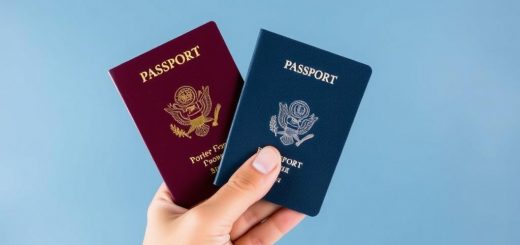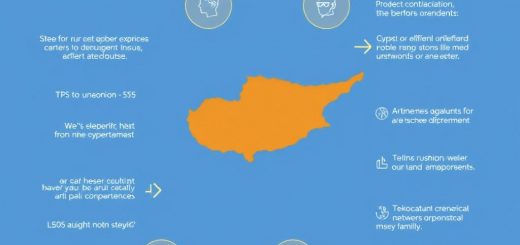Family Reunification Visas: Bringing Relatives to Cyprus
Cyprus has become an increasingly popular destination for expatriates, workers, and investors due to its favorable climate, strong economy, and strategic location in the Mediterranean. One core aspect of moving to Cyprus involves safeguarding the family unit, which is where family reunification visas play a critical role. Family reunification remains a key element of Cyprus immigration policy, allowing non-citizen residents and nationals to bring their loved ones into the country lawfully. This article provides an in-depth, technical exploration of the Cyprus family visa system, the spouse visa Cyprus options, and the detailed procedures for obtaining dependent visas and family residence permits. With clarity and precision, it equips applicants, legal practitioners, and immigration professionals with essential knowledge to navigate family reunification Cyprus frameworks effectively.
Understanding Family Reunification Cyprus
The principle of family reunification in Cyprus is embedded in both domestic law and EU regulations. Family reunification Cyprus refers to the legal process and mechanisms by which persons legally residing in Cyprus—whether through employment, asylum, long-term residence, or nationality—can invite and bring their immediate family members to live with them. This policy aims to protect the unity and integrity of families, acknowledging the social and emotional significance of maintaining close family ties.
Unlike general visitor or tourist visas, family reunification visas prioritize long-term residence and integration. The right to apply for these visas does not arise automatically; applicants must satisfy specific criteria demonstrating economic means, accommodation, and relationship authenticity. The underlying legal basis stems from Cyprus’s adherence to European Union Directives on family reunification, particularly Directive 2003/86/EC, complemented by national immigration law regulations.
The eligibility for family reunification extends to the recognized nuclear family members, which typically include spouses, minor or dependent children, and in some cases, parents or guardians. It applies to EU citizens residing in Cyprus and third-country nationals equally, although procedural nuances and document requirements may vary slightly depending on the applicant’s nationality and residency status.
Family reunification is a legal safeguard designed to preserve family unity by enabling non-citizen residents in Cyprus to legally sponsor their close relatives for residence.
Eligibility Criteria for Cyprus Family Visa
Applying for a Cyprus family visa requires meeting a series of eligibility criteria that determine whether the applicant qualifies to bring immediate family members into Cyprus. The eligibility depends on the category of the sponsor (the person residing in Cyprus) as well as the relationship between the sponsor and the dependents.
The primary categories of eligible sponsors include:
- EU and EEA nationals legally residing in Cyprus.
- Third-country nationals with a valid residence permit (work, study, or permanent residence).
- Asylum or humanitarian protection holders.
Eligible family members commonly include:
- Spouses (must be legally married, as Cyprus generally does not recognize cohabitation for reunification).
- Dependent children under 18 years old (or older if studying and financially dependent).
- Parents or legal guardians in limited and exceptional conditions.
The Cyprus family visa mandates that the sponsor prove their ability to financially support the dependents without resorting to public aid. This proof usually consists of bank statements, salary slips, or proof of income. Additionally, sponsors must confirm they have suitable housing that meets legal standards for occupancy.
For spouses applying for the spouse visa Cyprus, the relationship is scrutinized closely; sufficient documentation such as marriage certificates, joint financial statements, or other evidence may be requested to prevent marriage fraud.
| Eligibility Aspect | Details Required |
|---|---|
| Sponsor Status | Valid residence permit or citizenship in Cyprus |
| Relationship Proof | Marriage certificate, birth certificate, legal guardianship documents |
| Financial Means | Regular income, employment contracts, bank statements |
| Accommodation | Proof of housing that meets health and safety standards |
Meeting financial and accommodation requirements forms the backbone of eligibility assessments for family reunification Cyprus applications.
The Application Process for Family Reunification Visas
Applying for a family reunification visa in Cyprus entails a multi-stage process requiring precise paperwork, timing, and interaction with government institutions. The process begins once the sponsor or applicant initiates the request, often starting in the applicant’s country of residence or from within Cyprus itself.
The general procedure for family reunification Cyprus can be outlined as follows:
- Submission of an initial application to the Civil Registry and Migration Department or through Cypriot embassies abroad, depending on the applicant’s location.
- Thorough documentation review including relationship verification, financial status, and accommodation sufficiency.
- Background checks and biometrics collection.
- Issuance of the family visa, typically a short-term visa allowing entry into Cyprus if the applicant is outside the country.
- Once in Cyprus, the applicant must apply for a family residence permit Cyprus which grants the right to live and work.
Processing times vary significantly depending on several factors such as nationality, completeness of documentation, and seasonal workload, ranging from one to six months. Applicants are advised to prepare their applications meticulously to avoid delays caused by requests for additional information.
Applicants can apply for multiple dependent visas Cyprus on behalf of each family member, but every visa is assessed individually. Each dependent receives a separate residence permit, though the residency length usually ties directly to the sponsor’s status.
Efficient processing of family reunification applications in Cyprus hinges on accurate documentation and meeting specified standards for income and housing.
Spouse Visa Cyprus: Specifics and Requirements
The spouse visa Cyprus is one of the most common types of family reunification visas requested. It allows a legally married partner of a Cyprus resident or citizen to reside legally in Cyprus, enjoy the right to work, study, and integrate fully into Cypriot society.
Eligibility for the spouse visa Cyprus demands:
- A legally recognized marriage certificate. Cyprus strictly requires official documentation and does not accept common-law or non-registered partnerships.
- Proof that the Cyprus sponsor is either a citizen or holds a valid residence permit.
- Demonstrated financial stability to sustain the spouse without drawing welfare.
- Suitable housing that complies with public health and safety regulations.
Furthermore, the spouse visa Cyprus application requires a detailed interview in some cases to verify the authenticity of the marriage. The government maintains vigilant procedures aimed at detecting sham marriages aimed solely at immigration benefits.
The spouse visa Cyprus generally allows for a renewable residence permit valid for one to two years initially, with possibilities for renewal and eventual naturalization if all conditions are continually met.
The spouse visa Cyprus is a pathway for married partners to unite and live permanently in Cyprus, backed by stringent authenticity checks.
Dependent Visa Cyprus: Extending Residency Rights to Children and Others
The dependent visa Cyprus is intended primarily for minor children and, in some cases, children above 18 who are financially dependent and studying full-time. It also may apply to legal guardians or dependent elderly parents under exceptional grounds. This visa safeguards the family unit, ensuring dependents can access education, health services, and legal rights equivalent to Cypriot residents.
Key conditions for dependent visa Cyprus include:
- Children under 18 must be unmarried and financially dependent on the sponsor.
- Dependent adult children must demonstrate ongoing education or health conditions requiring dependency.
- Sponsors must establish they can financially maintain their dependents, bearing all associated living expenses.
- Dependent visa holders are entitled to residence permits allowing them to attend school and access healthcare.
In all cases, the dependent visa Cyprus links directly to the sponsor’s residence status. Should the sponsor lose their residency or citizenship, dependents’ status may also be jeopardized, underscoring the importance of compliance with local laws and renewal procedures.
Dependent visas serve as vital instruments for preserving the rights of minors and financially dependent family members within Cyprus.
Family Residence Permit Cyprus: Rights and Obligations
After entering Cyprus on a family reunification or spouse visa, the next critical step is securing the family residence permit Cyprus. This document confirms the legal right of the applicant (family member) to live in Cyprus, offering access to work, education, and social services.
The family residence permit Cyprus is issued by the Civil Registry and Migration Department following a successful visa entry and application submission. The permit’s validity usually aligns with the sponsor’s residency term but may allow renewals based on continuous compliance and genuine family ties.
Holders of the family residence permit Cyprus are required to comply with Cypriot laws, including registration with local municipalities, timely renewals, and reporting changes in residence or family status. These permits also enable holders to apply for permanent residence or citizenship in the future, depending on the duration of residence and integration measures.
Failure to maintain proper documentation or breaches of permit conditions—such as unauthorized employment prior to permit issuance—can lead to permit cancellation and potential deportation.
The family residence permit Cyprus formalizes family members’ legal status, granting them security and access to rights while imposing obligations to comply with national regulations.
Common Challenges in Family Reunification Cyprus
While the legal frameworks enable family reunification Cyprus, applicants often face procedural and bureaucratic challenges that complicate the process. These challenges include:
Stringent Documentation Requirements: Missteps in document authentication, translation, or missing certificates can delay applications substantially. Marriage certificates, birth certificates, proof of income, and housing documentation require official translations and apostilles in most cases.
Financial Thresholds: Sponsors must show sufficient funds to support their family members, excluding public assistance dependency. This financial criterion often becomes a decisive factor, especially for low-income residents or recent arrivals.
Processing Delays: The administrative workload and security checks may extend processing times unpredictably.
Ambiguity Around Dependent Eligibility: Determining who qualifies as a dependent can sometimes be subjective, particularly for adult children or elderly parents, leading to inconsistent outcomes.
Despite challenges, applicants can mitigate risks by preparing thoroughly, consulting immigration experts, and ensuring compliance with all instructions.
Understanding and anticipating procedural hurdles is vital for successful family reunification applications in Cyprus.
How Recent Policy Changes Affect Family Reunification in Cyprus
Cyprus continually updates its immigration laws to harmonize with EU directives and respond to demographic and economic realities. Recent policy changes have targeted tightening the financial criteria for family reunification to avoid dependency on public resources, emphasizing the sponsor’s income and accommodation standards.
Additionally, regulations now require more robust proof of stable relationships for spouse visa Cyprus applicants, including interviews and cross-checking of submitted documentation with foreign authorities. These reforms aim to strengthen the integrity of the immigration system and reduce fraudulent applications.
Another notable modification is the expanded use of biometric data collection aligned with EU security standards, facilitating cross-border checks and simplifying renewals after initial approval.
These regulatory evolutions demand applicants and sponsors stay informed and adhere strictly to updated guidelines to prevent application refusals or invalidations.
Recent policy updates in Cyprus focus on enhancing security and financial self-sufficiency measures in family reunification applications.
The Social and Economic Impact of Family Reunification in Cyprus
Family reunification Cyprus is more than a bureaucratic process; it holds significant social and economic implications for the island nation. Reuniting families helps stabilize immigrant populations, fostering deeper integration within Cypriot society and providing emotional support that enhances productivity.
Economically, family reunification contributes to population growth with working-age individuals and dependents participating in the economy through consumption, education, and labor. It also facilitates cultural exchange, social cohesion, and diversity, enriching Cypriot communities.
Conversely, overly restrictive policies risk social isolation for migrants and can push dependents into unofficial statuses that undermine public safety and economic contributions. Policymakers thus balance control and openness carefully.
Supporting family reunification strengthens social ties and boosts Cyprus’s economic and cultural vitality.
Your Next Steps: Navigating Family Reunification Cyprus with Confidence
Securing a family reunification visa, spouse visa Cyprus, and dependent visa Cyprus requires careful preparation, thorough understanding of legal frameworks, and proactive engagement with relevant authorities. The process culminates in obtaining a family residence permit Cyprus, granting your family the right to live, work, and participate fully in Cypriot society.
Applicants should begin by collecting and verifying all necessary documents, from marriage certificates to financial proofs, and seek professional advice when needed. Understanding the specific requirements for your family’s category and ensuring compliance significantly reduce processing delays and increase chances of approval.
Looking ahead, family reunification in Cyprus represents an opportunity not only to reunite with loved ones but to build a foundation for a thriving future in a country that values family unity deeply. With diligence, clarity, and patience, applicants can successfully navigate this complex legal pathway.
For the sponsor and the family members, this journey marks a meaningful step toward shared stability and prosperity in Cyprus’s welcoming environment.
Bringing It All Together: Unlocking Family Unity in Cyprus
The intricate system of family reunification visas in Cyprus weaves together legal diligence, bureaucratic precision, and human aspiration. At its core, it is grounded in the universal value of family cohesion amidst the challenges of migration. Navigating the Cyprus family visa system requires attentiveness to eligibility norms, precise documentation, and timely applications for spouse visas, dependent visas, and eventual family residence permits.
This process is both a technical procedure and a profound opportunity—one that requires an analytical understanding of laws and a compassionate appreciation of people’s desire to reunite with kin. By fulfilling the financial, housing, and legal criteria, sponsors and applicants open doors to long-term residence and integration in Cyprus.
Ultimately, family reunification Cyprus does not just represent an administrative venture but a vital bridge linking families and communities across borders, enriching lives and strengthening the social fabric of Cyprus. Mastering this process is essential for securing those bonds, fostering inclusion, and embracing Cyprus’s multicultural future.
Family reunification visas illuminate the pathway to shared lives and renewed hope for families coming together on Cypriot soil.
Frequently Asked Questions
- What is the difference between a family visa Cyprus and a family residence permit Cyprus?
The family visa Cyprus is typically a short-term entry visa allowing family members to enter Cyprus, while the family residence permit Cyprus is a longer-term document granting the legal right to reside and work in Cyprus. - How long does it take to process a spouse visa Cyprus application?
Processing times vary but generally range from 1 to 6 months, depending on document completeness, nationality, and administrative workload. - Can unmarried partners apply for family reunification in Cyprus?
Cyprus primarily recognizes legal marriages for spouse visa applications; common-law or unmarried partners do not qualify under family reunification rules. - What financial requirements must a sponsor meet for family reunification Cyprus?
Sponsors must prove sufficient stable income and financial resources to support their dependents without accessing public assistance, including providing bank statements and employment contracts. - Are dependent children over 18 eligible for a dependent visa Cyprus?
Yes, if they are financially dependent, studying full-time, and unmarried; otherwise, eligibility is limited. - Is it necessary to renew family residence permits Cyprus regularly?
Yes, family residence permits must be renewed before expiry, with documented proof of ongoing relationship, financial means, and accommodation. - Can a family reunification visa lead to permanent residence or citizenship?
Yes, after meeting continuous residence requirements and other criteria, holders may apply for permanent residency or citizenship in Cyprus.



